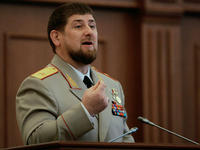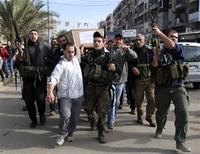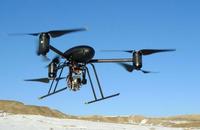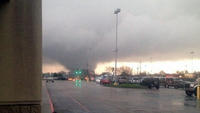-
Obama to issue cybersecurity executive order today
President Barack Obama is expected to issue an executive order tomorrow to dealing protecting U.S. critical infrastructure from cyberattacks. The order will be issues one day after the president’s State of the Union address. The order will establish a critical infrastructure council which will be run by DHS and will include members of the Departments of Defense, Justice, and Commerce as well as the National Intelligence Office. The council will be tasked with formulating new regulations for federal agencies, or broadening regulations already in place. The regulations will most likely include the sharing of data between private corporations and the federal government.
-
-
Final U.S. infrastructure report offers a sober message

In its fifth and final report on the state of U.S. infrastructure, the American Society of Civil Engineers (ASCE) has a sober message for elected officials, policy makers, businesses, and general public: unless the United States invests an additional $1.57 billion per year in infrastructure — drinking water and waste water, electricity, airports, seaports and waterways, and surface transportation — between now and 2020, the nation will lose $3.1 trillion in GNP (gross national product), $1.1 trillion in trade, a $3,100 per year drop in personal disposable income, $2.4 trillion in lost consumer spending, and a little over 3.1 million jobs.
-
-
Chechnya president orders crackdown on wizards, sorcerers, and faith healers

Ramzan Kadyrov, the president of Chechnya since 2005, was the driving force behind the Center for Islamic Medicine in Grozny, the largest Islamic folk hospital in Europe, where faith healers perform djinn (Islamic spirits) exorcisms by reading Quranic verses aloud. Kadyrov has changed his mind, and has now banned sorcery in the country, calling its practitioners “charlatans.”
-
-
Courts largely ignore immigration status in lawsuits: study
When a person living in the United States without legal permission or suspected of doing so is involved in a work-related lawsuit, most courts disregard their immigration status when determining remedies, says a study from an expert in labor relations.
-
-
Biden argues new gun laws needed
Vice President Joe Biden told regional law enforcement officials in Philadelphia on Monday that new gun laws are needed if gun violence is to stop. Biden pledged to take his message around the country.
-
-
North Korea’s conducts its third nuclear test
North Korea early Tuesday (EST) conducted its third underground nuclear test. The South Korean Defense Ministry said its sensors indicated the nuclea test had a yield of six to seven kilotons (about half the size of the bomb dropped in Hiroshima in August 1945). In 2006 North Korea tested a nuclear device with a yield smaller than one kiloton. Its second text, in 2009, was with a yield estimated to be between two to six kilotons. The yield of the test is only one measure of North Korea’s nuclear progress. There are two other important measures: the fissile material used and the device design.
-
-
Iran builds 50,000-strong Syrian Alawite militia for post-Assad era

Officers from the Iranian Revolutionary Guard, aided by scores of Hezbollah officers, have been busy building, equipping, and training a new Alawite militia which will continue to protect Iranian and Hezbollah interests in Syria following the inevitable fall of Assad. The Assad regime already has a paramilitary militia, the shabiha, or “ghost,” units. The shabiha, together with Hezbollah fighters from Lebanon, has concentrated on killing Sunni civilians in villages and towns deep inside Alawaite-majority areas. Syria and Hezbollah, however, have been worried for a while that, at the end, the loyalty of the shabaiha is to the Syrian Alawaite minority and its interest. Iran and Hezbollah want to create a well-armed militia which will be loyal to the interests of Iran and Hezbollah. The new, 50,000-strong militia, called Jaysh fighters, is a purely sectarian fighting force overseen by Iranian and Hezbollah commanders and separate from the shabiha paramilitaries.
-
-
Mali crisis will be the topic of Thursday House Foreign Affairs Committee hearing
The House Foreign Affairs Committee will hold a hearing on Thursday, 14 February, entitled, The Crisis in Mali: U.S. Interests and the International Response. “Today in Mali, you have battle-hardened, al-Qaeda-affiliated militants, armed to the teeth with weapons from Qadhafi’s stockpile, seeking safe haven,” said Representative Ed Royce (R-California), the committee chairman.
-
-
Seattle mayor says no to drones

Seattle mayor Mike McGinn has shut down the Seattle Police Department’s drone program before it started. McGinn said the police need to stay focused on “community building.” The announcement came just one day after the city held a public hearing to discuss restrictions to be imposed on drone use by the police departments. Many citizens voiced their concerns about possible violations of privacy.
-
-
Legislation to require Internet privacy baseline not around the corner
The European Union has set tough privacy protection laws and is even considering a proposal which would set even stricter requirements on Internet companies, including allowing users to access and delete data collected on them. The United States, however, has very few privacy protection laws. Some argue this is a good thing.
-
-
Cleanup starts after Mississippi tornado, storms

Emergency officials in Mississippi spent Monday dealing with the damage after a number of storms and a tornado ripped through the southern section of the state, injuring at least sixty people. No deaths were reported.
-
-
Infrastructure sees drop in funding last year
Infrastructure investments in roads, bridges, and power stations have dropped significantly in 2012 as banks struggled to offer long-term debt and governments targeted cost savings. There were hopes that infrastructure spending would boost the world economy in 2012, but funding fell from $159 billion worldwide in 2011 to $99 billion.
-
-
Labor organizes campaign to push GOP to support path to citizenship
Immigration advocates have launched a campaign to push Republicans to agree to legislation which provides a path to citizenship for more than eleven million illegal immigrants currently living in the United States. Several GOP leaders have called for granting illegal immigrants legal status in the United States, but not a path to U.S. citizenship. The AFL-CIO, which is helping in organizing and funding this latest campaign, says that allowing millions of undocumented residents to remain in the country without full citizenship would only perpetuate a caste system which will drag down wages and health benefits for all workers.
-
-
Idaho debating nuclear waste storage
For two decades, the Yucca mountain nuclear waste repository in Nevada was viewed as a long-term solution to the growing problem of radioactive waste generated by the 104 active nuclear power generation plants in the United States. One of the Obama administration’s first acts was to “defund” the project, in effect outing an end to it. States such as Texas, New Mexico, and North Carolina have fashioned their own interim solution to the problem of nuclear waste storage, and the governor of Idaho wants his state to follow these states’ example.
-
-
Gang of Eight: DHS secretary to determine if border is secure

Even supporters of immigration reform admit that security along the U.S.-Mexico border should be improved so that legalizing the status of the eleven million undocumented immigrants currently in the United States would not become a magnet for drawing even more undocumented immigrants into the country. How do we know, however, whether the border is secure enough for the legalizing process to begin? A bipartisan group of senators, known as the Gang of Eight, has an idea: under the terms of the bipartisan framework for immigration reform, DHS secretary Janet Napolitano would make the final determination about whether or not the border is secure. Once she makes the determination that the border is secure, the eleven million undocumented immigrants would start on their path to a legal status in the country.
-
More headlines
The long view
Factories First: Winning the Drone War Before It Starts
Wars are won by factories before they are won on the battlefield,Martin C. Feldmann writes, noting that the United States lacks the manufacturing depth for the coming drone age. Rectifying this situation “will take far more than procurement tweaks,” Feldmann writes. “It demands a national-level, wartime-scale industrial mobilization.”
No Nation Is an Island: The Dangers of Modern U.S. Isolationism
The resurgence of isolationist sentiment in American politics is understandable but misguided. While the desire to refocus on domestic renewal is justified, retreating from the world will not bring the security, prosperity, or sovereignty that its proponents promise. On the contrary, it invites instability, diminishes U.S. influence, and erodes the democratic order the U.S. helped forge.
Fragmented by Design: USAID’s Dismantling and the Future of American Foreign Aid
The Trump administration launched an aggressive restructuring of U.S. foreign aid, effectively dismantling the United States Agency for International Development (USAID). The humanitarian and geopolitical fallout of the demise of USAID includes shuttered clinics, destroyed food aid, and China’s growing influence in the global south. This new era of American soft power will determine how, and whether, the U.S. continues to lead in global development.
Water Wars: A Historic Agreement Between Mexico and US Is Ramping Up Border Tension
As climate change drives rising temperatures and changes in rainfall, Mexico and the US are in the middle of a conflict over water, putting an additional strain on their relationship. Partly due to constant droughts, Mexico has struggled to maintain its water deliveries for much of the last 25 years, deliveries to which it is obligated by a 1944 water-sharing agreement between the two countries.
How Disastrous Was the Trump-Putin Meeting?
In Alaska, Trump got played by Putin. Therefore, Steven Pifer writes, the European leaders and Zelensky have to “diplomatically offer suggestions to walk Trump back from a position that he does not appear to understand would be bad for Ukraine, bad for Europe, and bad for American interests. And they have to do so without setting off an explosion that could disrupt U.S.-Ukrainian and U.S.-European relations—all to the delight of Putin and the Kremlin.”
How Male Grievance Fuels Radicalization and Extremist Violence
Social extremism is evolving in reach and form. While traditional racial supremacy ideologies remain, contemporary movements are now often fueled by something more personal and emotionally resonant: male grievance.
